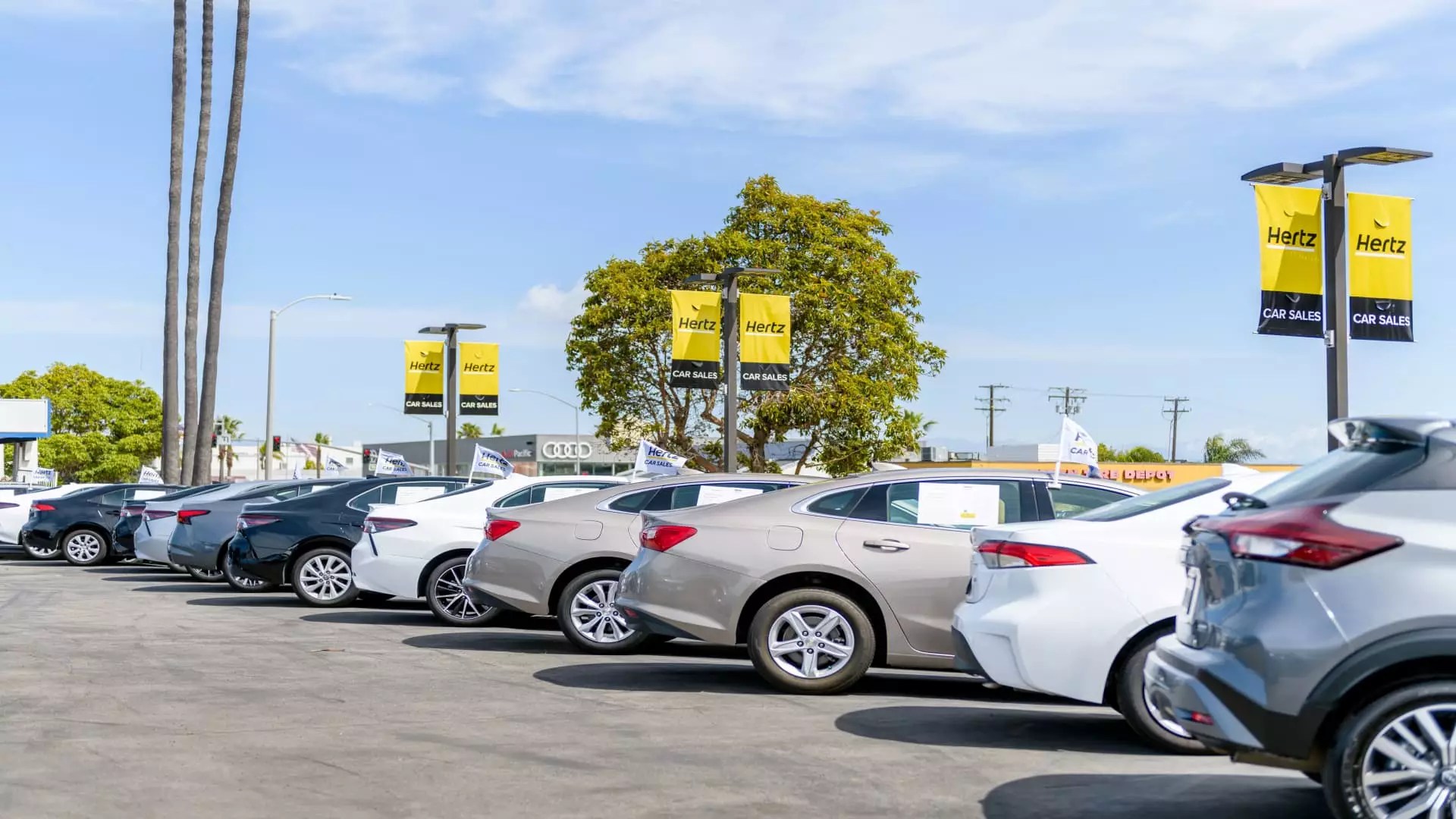Hertz’s decision to sell used vehicles through Amazon Autos signals a strategic pivot that could redefine how traditional car rental companies approach retail. While this move may seem innovative on the surface—leveraging Amazon’s vast reach and convenience—it raises serious questions about whether Hertz is truly embracing modernization or merely chasing superficial trends. Instead of solidifying its core strength as a rental giant, Hertz seems to be dabbling in retail opportunism, risking delta between its brand identity as a car rental pioneer and the volatile world of online used car sales.
The partnership’s core appeal—ease of browsing, digital paperwork, and online purchases—looks attractive on paper. Yet, does this fundamentally address Hertz’s deep-seated challenges? The move appears to be a tactical Band-Aid rather than a strategic overhaul. The risk lies in overextending into a highly competitive, commoditized used car market that is notoriously volatile with fluctuating prices, inventory shortages, and rising consumer skepticism about online used vehicle purchases. Hertz, known for its fleet of rental vehicles, might be spreading its focus too thin, risking its reputation if this digital foray proves less profitable than anticipated.
Does Amazon’s Entry Signal the Future or a Predatory Attempt?
On the surface, Amazon’s entry into vehicle sales seems like a logical extension of its e-commerce dominance. But a deeper look reveals an underlying tension: Amazon’s nascent automotive retail push feels more like an opportunistic expansion, capitalizing on market demand rather than a calculated, sustainable strategy. Partnering with Hertz—an established fleet owner—provides Amazon Autos with instant credibility and inventory. Yet, it also exposes Amazon to the inherent risks of used car markets: overstock, depreciation, and consumer trust issues.
This partnership may symbolize a broader trend—tech giants infiltrating traditional service sectors under the guise of customer-centric innovation. But, is this healthy competition or a monopolistic move that could stifle smaller dealerships and other retail channels? From a centrist, liberal perspective, there is a concern that Amazon’s aggressive expansion in auto sales might marginalize local businesses and existing automotive enterprises, leading to less choice, higher prices, and reduced consumer protection. The long-term implications of Amazon’s autos venture seem uncertain at best, and potentially problematic if it tightens its grip on vehicle purchasing channels.
Innovation or a Short-Term Profit Play?
Hertz’s retail expansion aligns with its broader “Back-to-Basics Roadmap,” aiming to boost profitability and stabilize its financial footing after pandemic-induced turbulence. Launching a used vehicle sales platform through Amazon Autos is undoubtedly a strategic move designed to capitalize on rising used car prices and consumer shift towards online shopping. However, it’s questionable whether this will be enough to restore Hertz’s profitability, especially given the industry’s cyclical nature.
The emphasis on digital retailing might superficially appear revolutionary, but the reality is that used car sales are wrought with challenges—price fluctuations, dealership competition, and consumer trust. Hertz’s existing strengths—fleet management, rental services—remain its true asset. Diverting attention to online retail may divert resources from its core operations, potentially weakening its primary revenue streams. If this digital push fails to bring consistent profit—given the thin margins typical in used car sales—Hertz risks disappointing investors and diluting its brand authority.
Balancing Innovation with Caution in the Automotive Realm
The trajectory Hertz is charting embodies a precarious balance between innovation and reckless diversification. While adapting to an increasingly digital landscape is necessary, not every leap into new markets guarantees success. The core problem remains: can Hertz sustain its reputation and profit margins as a used car retailer without compromising its identity as a rental powerhouse?
From a center-left viewpoint, there’s an inherent skepticism toward monopolistic technological expansions that could marginalize smaller players and reduce competitive pricing. The partnership with Amazon may offer convenience but raises questions about the long-term effects on market fairness and consumer choice. Ultimately, Hertz’s gamble on the retail side suggests a company aware of its vulnerabilities but perhaps overestimating its capacity to succeed خارج its traditional strengths. If this digital retail strategy falters, it might not only impact Hertz’s financial health but could also serve as a cautionary lesson about the limits of tech-driven disruption in traditional industries.

